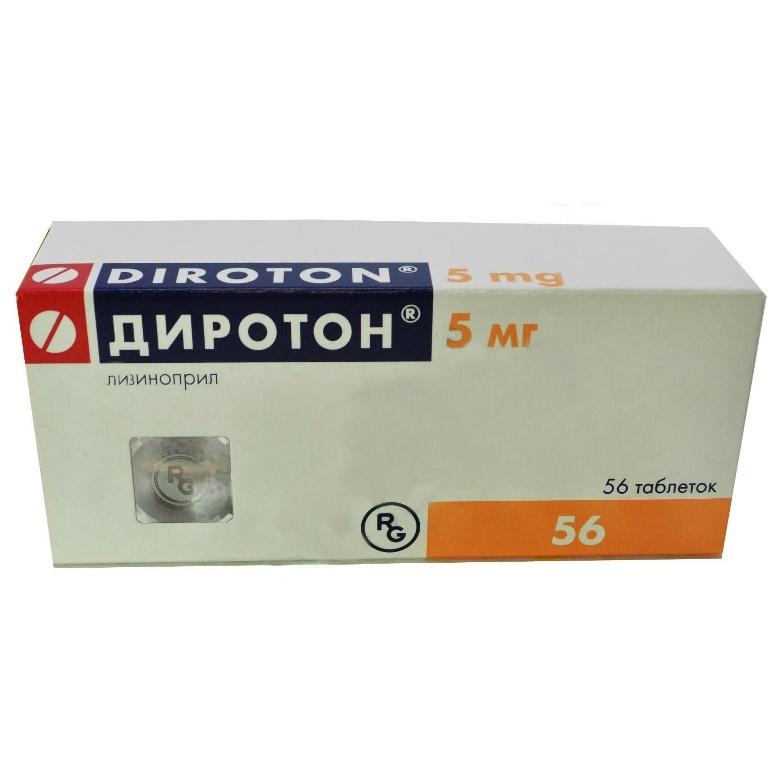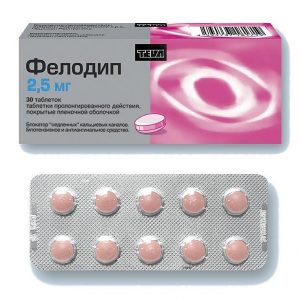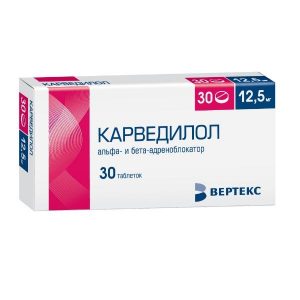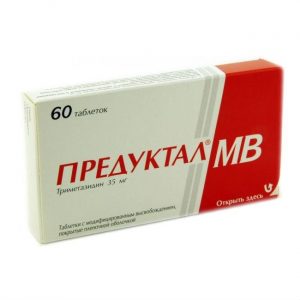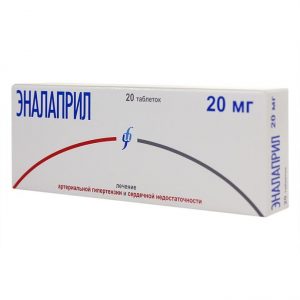Description
tablet release form.
Packing
In a blister pack of 14 tablets. There are 4 blisters in the package.
Indications
– Arterial hypertension (as monotherapy or in combination with other antihypertensive drugs).
– Chronic heart failure (as part of combination therapy for patients taking digitalis and / or diuretics).
– Acute myocardial infarction (in the first 24 hours with stable hemodynamic parameters to maintain these indicators and prevent left ventricular dysfunction and heart failure).
– Diabetic nephropathy (to reduce albuminuria in patients with insulin-dependent diabetes mellitus with normal blood pressure and in patients with non-insulin-dependent diabetes mellitus with arterial hypertension).
Contraindications
– History of angioedema (including when using ACE inhibitors).
– Quincke’s hereditary edema.
– Age under 18 years of age (efficacy and safety not established).
– Hypersensitivity to lisinopril or other ACE inhibitors.
Use during pregnancy and lactation
Use of Diroton during pregnancy is contraindicated. Lisinopril crosses the placental barrier. When pregnancy is established, the drug should be discontinued as soon as possible.
Reception of ACE inhibitors in the II and III trimesters of pregnancy has an adverse effect on the fetus (a pronounced decrease in blood pressure, renal failure, hyperkalemia, cranial hypoplasia, intrauterine death are possible). There are no data on the negative effects of the drug on the fetus if used in the first trimester.
It is recommended to establish close monitoring of newborns and infants who have been exposed to intrauterine exposure to ACE inhibitors in order to detect a pronounced decrease in blood pressure, oliguria, hyperkalemia.
There is no data on the penetration of lisinopril into breast milk. If necessary, the appointment of the drug during lactation, breastfeeding should be discontinued.
Composition of
One tablet contains:
lisinopril 5 mg.
Excipients:
magnesium stearate,
talc,
mannitol,
corn starch,
calcium hydrogen phosphate dihydrate.
Dosage and administration
The drug is taken orally 1 time / day, in the morning, with all indications, before or after a meal, always at about the same time of day.
Application for essential hypertension: patients not receiving other antihypertensive drugs are prescribed 10 mg 1 time / day. The usual daily maintenance dose is 20 mg. The maximum daily dose is 40 mg. The full effect usually develops after 2-4 weeks from the start of treatment, which should be taken into account when increasing the dose.
With insufficient clinical effect, it is possible to combine the drug with other antihypertensive drugs. If the patient received preliminary treatment with diuretics, then their reception must be stopped 2-3 days before the start of the use of Diroton. If it is impossible to cancel diuretics, then the initial dose of Diroton should not exceed 5 mg / day. In this case, after taking the first dose, medical monitoring is recommended for several hours (the maximum effect is achieved after about 6 hours), because a marked decrease in blood pressure may develop.
Application for renovascular hypertension and conditions with increased activity of the renin-angiotensin-aldosterone systems: it is advisable to prescribe a lower initial dose – 2.5-5 mg / day under enhanced medical supervision (control of blood pressure, kidney function, potassium concentration in blood serum). The maintenance dose should be determined depending on the dynamics of blood pressure.
Use in chronic heart failure: the initial dose is 2.5 mg 1 time / day, which can be increased to the usual maintenance daily dose of 5-20 mg. The daily dose should not exceed 20 mg.
Use in acute myocardial infarction: as part of combination therapy, 5 mg are prescribed on the first day, then 5 mg every other day, 10 mg after two days, and then 10 mg 1 time / day. In patients with acute myocardial infarction, the drug should be used for at least 6 weeks. At the beginning of treatment or during the first 3 days after acute myocardial infarction in patients with low systolic blood pressure (? 120 mm Hg. Art.) the drug should be prescribed in a dose of 2.5 mg. In the case of a decrease in blood pressure (systolic blood pressure? 100 mm Hg) while taking Diroton, the daily dose of 5 mg can be temporarily reduced to 2.5 mg. In the case of a prolonged marked decrease in blood pressure (srdolic blood pressure
) In patients with insulin-dependent diabetes mellitus, Diroton is used at a dose of 10 mg 1 time / day. If necessary, the dose can be increased to 20 mg 1 time / day in order to achieve diastolic blood pressure values below 75 mm Hg. In patients with non-insulin-dependent diabetes mellitus, the drug is prescribed in the same dose, in order to achieve diastolic blood pressure below 90 mm Hg in the sitting position.
Due to the fact that lisinopril is excreted by the kidneys, the initial dose should be determined on depending on creatinine clearance, then, in accordance with the reaction, a maintenance dose should be established under conditions of frequent monitoring of renal function, potassium concentration and serum sodium concentration: Creatinine clearance (ml / min) Initial dose 30-70 5-10 mg 10-30 2.5-5 mg Less than 10 (including patients undergoing hemodialysis) 2.5 mg
Side effects
The most common side effects: dizziness, headache (5-6%), weakness, diarrhea, dry cough (3%), nausea, vomiting, orthostatic hypotension, skin rash, chest pain (1-3 %).
The frequency of other adverse reactions is less than 1%.
From the cardiovascular system: marked decrease in blood pressure, chest pain rarely – orthostatic hypotension, tachycardia, bradycardia, onset of symptoms of heart failure, impaired AV conduction, myocardial infarction.
From the digestive system: nausea, vomiting, abdominal pain, dry mouth, diarrhea, dyspepsia, anorexia, taste disorder, pancreatitis, hepatitis (hepatocellular and cholestatic), jaundice (hepatocellular or cholestatic), hyperbilirubinemia.
From the skin: urticaria, increased sweating, photosensitivity, skin itching, hair loss.
From the side of the central nervous system: lability of mood, impaired concentration of attention, paresthesia, increased fatigue, drowsiness, convulsive twitching of the muscles of the limbs and lips rarely – asthenic syndrome, confusion.
From the respiratory system: dyspnea, dry cough, bronchospasm, apnea.
From the hemopoietic system: leukopenia, thrombocytopenia, neutropenia, agranulocytosis, anemia (a decrease in the concentration of hemoglobin, hematocrit, erythrocytopenia), with prolonged treatment, a slight decrease in hemoglobin and hematocrit is possible, in some cases – agranulocytosis.
Allergic reactions: angioedema of the face, limbs, lips, tongue, epiglottis and / or larynx, intestinal angioedema, vasculitis, positive reactions to antinuclear antibodies, increased ESR, eosinophilia in very rare cases – interstitial angioedema without tissue ( exit of transudate into the lumen of the alveoli).
From the genitourinary system: uremia, oliguria, anuria, impaired renal function, acute renal failure, decreased potency.
Laboratory indicators: hyperkalemia and / or hypokalemia, hyponatremia, hypomagnesemia, hypochloremia, hypercalcemia, hyperuricemia, increased plasma urea and creatinine, hypercholesterolemia, hypertriglyceridemia, decreased glucose tolerance.
Other: arthralgia, arthritis, myalgia, fever, exacerbation of gout.
Drug Interactions
Caution should be used with Diroton at the same time as potassium-sparing diuretics (spironolactone, triamterene, amiloride), potassium, potassium-containing salt substitutes, as well. the risk of developing hyperkalemia is increased, especially with impaired renal function. Therefore, these combinations should be prescribed only on the basis of an individual decision of the attending physician with regular monitoring of serum potassium and renal function.
When used with diuretics and other antihypertensive drugs, an additive antihypertensive effect (risk of severe BP) develops.
When used with NSAIDs (including indomethacin), estrogens, and adrenostimulants, the antihypertensive effect of lisinopril is reduced.
When used with lithium, lithium excretion may decrease, so serum lithium should be monitored regularly.
When used with antacids and cholestyramine, the absorption of lisinopril from the gastrointestinal tract is reduced.
When used simultaneously, Diroton can enhance the effect of ethanol (alcohol).
When used with diuretics, lisinopril reduces potassium excretion.
overdose Symptoms: marked decrease in blood pressure.
Treatment: carry out symptomatic therapy if necessary (in / in the introduction of fluid, control and normalization of blood pressure, water-electrolyte balance).
Lisinopril can be eliminated by dialysis.
Storage conditions
Store at a temperature of 15 ° to 30 ° C.
The Expiration of
is 3 years.
Deystvuyuschee substances
lisinopril
dosage form
dosage form
tablets
Gideon Richter-Rus, Ven gria
